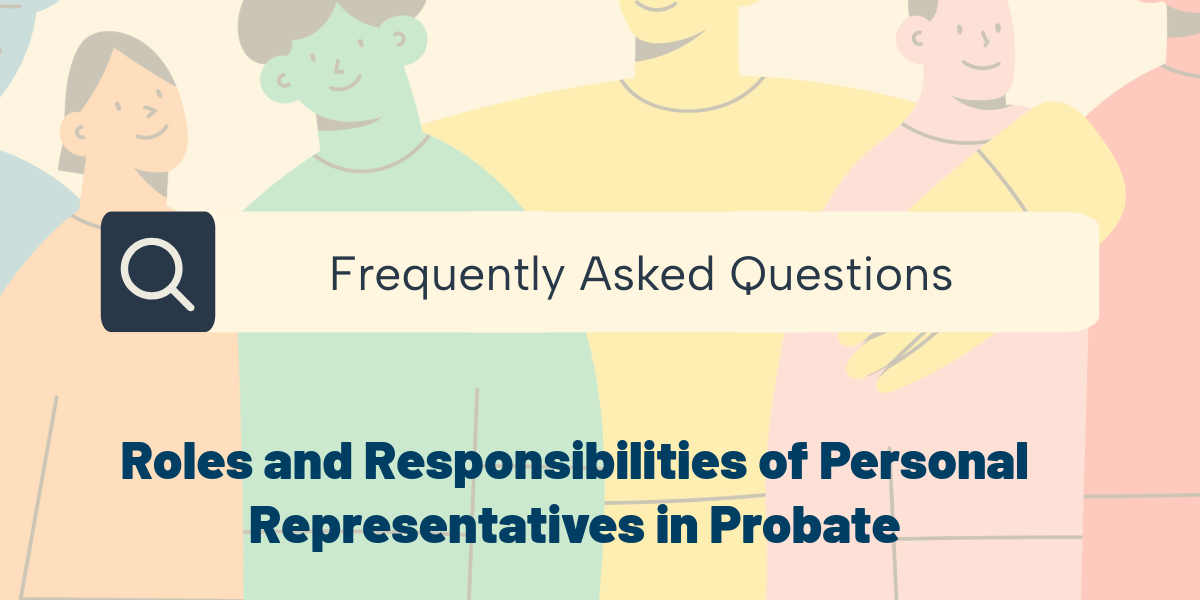Roles and Responsibilities of Personal Representatives in Probate in North Carolina
When someone passes away, the court appoints a personal representative to manage the decedent’s estate. In North Carolina, a personal representative carries out a series of important tasks under Chapter 28A of the North Carolina General Statutes. Understanding these duties helps families move through probate smoothly and protects the estate from unnecessary delays or disputes.
1. Detailed Roles and Responsibilities of a Personal Representative
Appointment and Qualification
- File a petition and oath for appointment with the clerk of superior court (see N.C. Gen. Stat. § 28A-6-2).
- Post bond if the will or the court requires it (N.C. Gen. Stat. § 28A-12-1).
Gathering and Safeguarding Assets
- Identify and locate all estate assets, including real estate, bank accounts, investments, and personal property.
- Secure assets to prevent waste or loss. Keep estate funds separate from personal funds.
Notice to Creditors and Beneficiaries
- Publish notice to creditors in a local newspaper to allow claims against the estate (N.C. Gen. Stat. § 28A-19-3).
- Mail notice to known creditors and to heirs or beneficiaries of the will (N.C. Gen. Stat. § 28A-13-3).
Inventory and Accounting
- Prepare and file an accurate inventory of all estate property within 90 days of appointment (N.C. Gen. Stat. § 28A-18-1).
- Maintain detailed records of receipts, disbursements, and distributions. Submit periodic accountings if required by the court.
Paying Debts, Taxes, and Expenses
- Review and approve or contest creditor claims under the creditor notice statute.
- File and pay estate taxes, income taxes, and any inheritance taxes due. Work with the North Carolina Department of Revenue when necessary.
- Pay funeral expenses, administration costs, and other valid claims in the order prescribed by law.
Distribution of Estate Assets
- Distribute assets according to the decedent’s will or, if there is no will, under North Carolina’s intestacy statutes (N.C. Gen. Stat. § 28A-15-1).
- Obtain receipts or releases from beneficiaries to confirm proper delivery of property.
Closing the Estate
- File a final accounting and petition for discharge once all duties are complete.
- Obtain the court’s order discharging the personal representative and closing the estate.
2. Key Points to Keep in Mind
- A personal representative owes a fiduciary duty of loyalty and prudence to the estate and its beneficiaries.
- Maintain transparent records. Detailed documentation prevents disputes and facilitates court review.
- Comply with all notice requirements and deadlines under Chapter 28A to protect the estate from late claims.
- Avoid conflicts of interest. Do not mix estate assets with personal property.
- Consult an attorney if complicated issues arise, such as contested claims or real estate transfers.
Conclusion and Next Steps
Serving as a personal representative carries substantial responsibility. You must follow North Carolina law to inventory assets, notify creditors, pay debts, and distribute property. A misstep can delay probate or expose you to liability. If you have questions or need hands-on guidance, turn to Pierce Law Group. Our attorneys understand the complexities of probate administration and can help you fulfill your duties with confidence. Contact us at (919) 341-7055 or email intake@piercelaw.com to schedule a consultation today.


